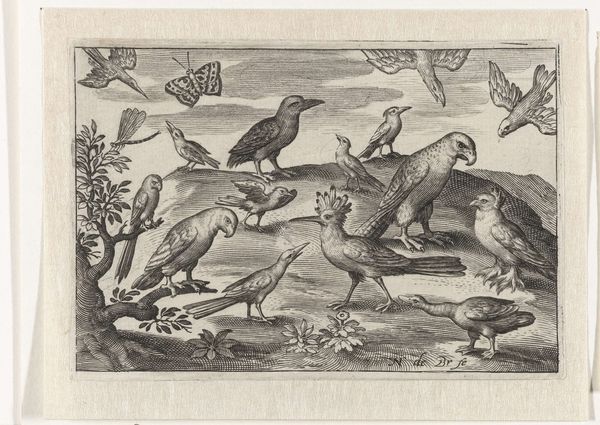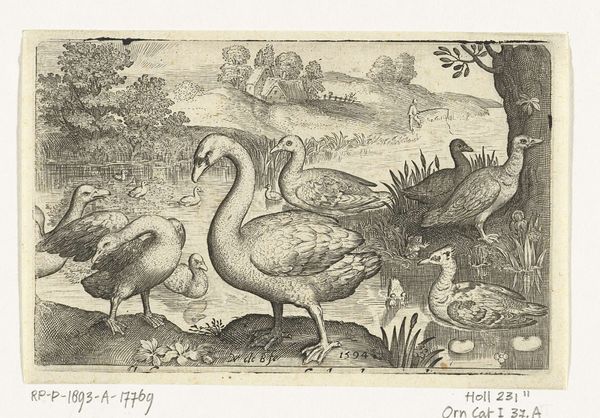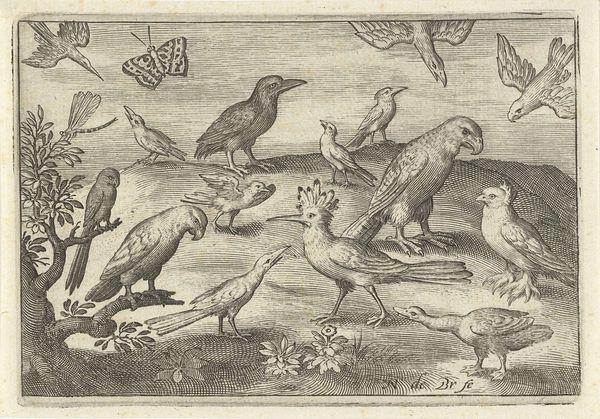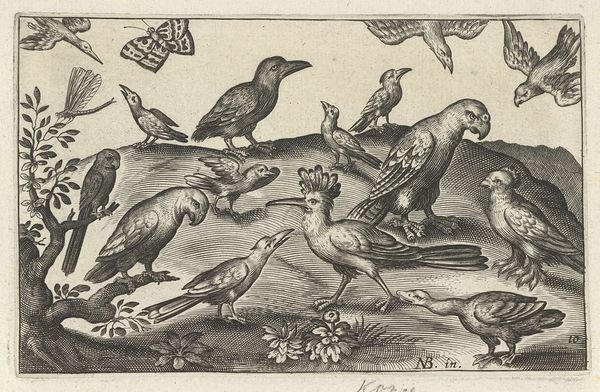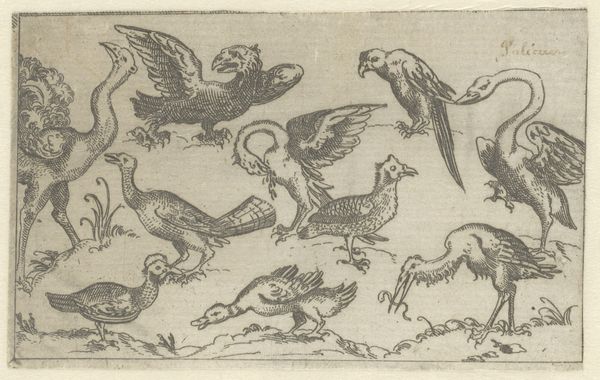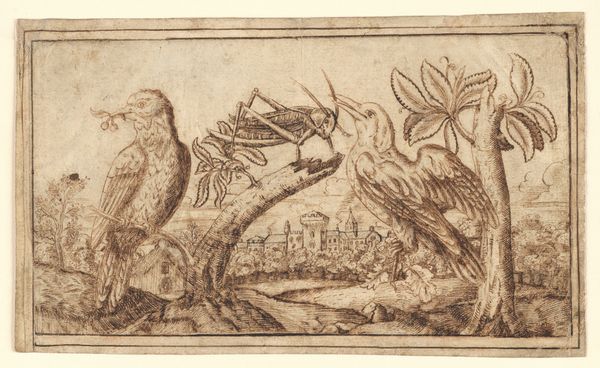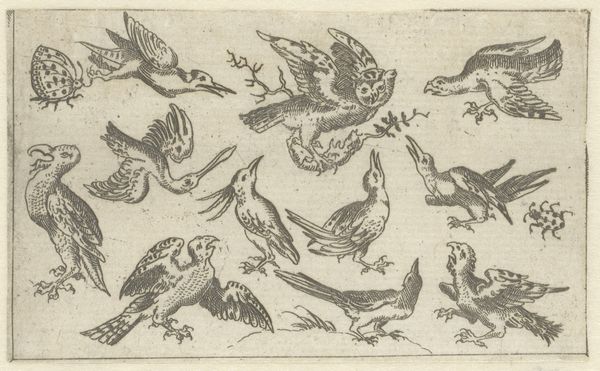
print, intaglio, engraving
#
pen drawing
#
animal
#
dutch-golden-age
# print
#
pen illustration
#
pen sketch
#
intaglio
#
old engraving style
#
bird
#
personal sketchbook
#
ink drawing experimentation
#
pen-ink sketch
#
pen work
#
sketchbook drawing
#
sketchbook art
#
engraving
Dimensions: height 37 mm, width 167 mm
Copyright: Rijks Museum: Open Domain
This frieze, featuring ten birds and an insect, was made by Nicolaes de Bruyn, likely in the early 17th century, using the technique of engraving. Look closely and you'll notice the linear quality of the image, created by carefully incising lines into a metal plate, which then holds ink and transfers the design to paper. The fineness of the lines allows for detailed depictions of the birds' plumage and the surrounding foliage, and the choices of dark and light contrast evoke texture and depth. Consider the labor involved; each line represents a deliberate action by the artist, requiring skill and precision. The act of engraving, like other forms of printmaking, facilitated the wider distribution of images, making art more accessible to a broader audience beyond the elite. This print, therefore, is not just an aesthetic object, but also an artifact of its time, reflecting changing modes of production and consumption in the early modern period. Appreciating the work involved in its production allows us to understand the full significance of the artwork.
Comments
No comments
Be the first to comment and join the conversation on the ultimate creative platform.


